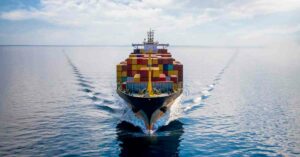
Indian Port Workers Union Refuses To Handle Arms Shipment To Israel Amid Conflict
February 19, 2024
Germany Approves Military Deployment In EU Mission To Safeguard Red Sea Shipping
February 19, 2024
Seafarers now have the right to deny voyages through the Red Sea, in an essential development for marine safety, as Yemen’s Houthi rebels continue attacks on commercial vessels. This industrial agreement, announced by labour union officials and industry groups, comes as tensions in the region rise, with ships increasingly becoming targets of Houthi drone and missile strikes.
The initiative, which reflects an essential step toward prioritizing seafarers’ safety, comes from negotiations between seafarers and commercial shipping firms under the guidance of the International Bargaining Forum (IBF). According to the newly created specifications, seafarers must give seven days’ notice before entering the high-risk area and have the option of being relocated to a different location at the expense of the shipping firm. Furthermore, they are entitled to compensation equal to two months’ basic wage.

Stephen Cotton, General Secretary of the International Transport Workers Federation, highlighted the importance of the situation, stating that the decision to include seafarers’ right to refuse to sail was not taken casually as this might adversely affect global trade, but ensuring the security of the seafarers is essential.
The Gulf of Aden and its surrounding waterways have been added to the High-Risk Area, highlighting the seriousness of the threat presented by Houthi rebels in Yemen. Cotton explained that while seafarers can opt out of journeys through these dangerous areas, careful planning is required due to logistical limitations.
Despite the provision allowing seafarers to decline voyages, some firms, particularly those in the container liner sector, have chosen to divert their vessels through the Cape of Good Hope, compounding supply chain issues and increasing sailors’ time at sea. Cotton highlighted the complications faced by organizations with business interests in the region, stressing the delicate balance between commercial requirements and seafarers’ safety.
Furthermore, concerns remain about vessels calling at Israeli ports during the persistent conflict in Gaza, even though these ports have not been designated as high-risk zones. Cotton expressed dissatisfaction with the lack of progress in addressing these problems, emphasizing the ongoing risk of mariners operating in hazardous locations.
As tensions rise and sailors cross increasingly dangerous waters, the sector stays cautious in protecting the safety of those at sea while assuring the continuous flow of global trade along critical maritime routes.
Reference: Reuters
Seafarers Granted Right To Refuse Red Sea Transits As Houthi Attacks Escalate appeared first on Marine Insight – The Maritime Industry Guide
Source: Maritime Shipping News


